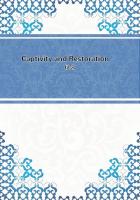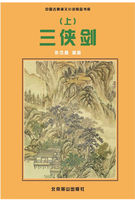Nor is a disposition to find `every thing as it should be,'less at variance with itself,than with reason and utility.The commonplace arguments in which it vents itself justify not what is established,in effect,any more than they condemn it:since whatever now is established,once was innovation.
Precipitate censure,cast on a political institution,does but recoil on the head of him who casts it.From such an attack it is not the institution itself,if well grounded,that can suffer.What a man says against it either makes impression or makes none.If none,it is just as if nothing had been said about the matter:if it does make an impression,it naturally calls up some one or other in defence.For if the institution is in truth a beneficial one to the community in general,it cannot but have given an interest in its preservation to a number of individuals.By their industry,then,the reasons on which it is grounded are brought to light:from the observation of which those who acquiesced in it before upon trust,now embrace it upon conviction.Censure,therefore,though ill-founded,has no other effect upon an institution than to bring it to that test,by which the value of those,indeed,on which prejudice alone has stamped a currency,is cried down,but by which the credit of those of sterling utility is confirmed.
Nor is it by any means from passion and ill-humour,that censure,passed upon legal institutions,is apt to take its birth.When it is from passion and ill-humour that men speak,it is with men that they are in ill-humour,not with laws:it is men,not laws,that are the butt of arrogance.(4)Spleen and turbulence may indeed prompt men to quarrel with living individuals:
but when they make complaint of the dead letter of the Law,the work of departed lawgivers,against whom no personal antipathy can have subsisted,it is always from the observation,or from the belief at least,of some real grievance.The Law is no man's enemy:the Law is no man's rival.Ask the clamorous and unruly multitudeit is never the Law itself that is in the wrong:it is always some wicked interpreter of the Law that has corrupted and abused it.(5)Thus destitute of foundations are the terrors,or pretended terrors,of those who shudder at the idea of a free censure of established institutions.
So little does the peace of society require the aid of those lessons which teach men to accept of any thing as reason,and to yield the same abject and indiscriminating homage to the Laws here,which is paid to the despot elsewhere.The fruits of such tuition are visible enough in the character of that race of men who have always occupied too large a space in the circle of the profession:A passive and enervate race,ready to swallow any thing,and to acquiesce in any thing:with intellects incapable of distinguishing right from wrong,and with affections alike indifferent to either:insensible,short-sighted,obsti nate:lethargic,yet liable to be driven into convulsions by false terrors:deaf to the voice of reason and public utility:obsequious only to the whisper of interest,and to the beck of power.
This head of mischief,perhaps,is no more than what may seem included under the former.For why is it an evil to a country that the minds of those who have the Law under their management should be thus enfeebled?
It is because it finds them impotent to every enter prize of improvement.
Not that a race of lawyers and politicians of this enervate breed is much less dangerous to the duration of that share of felicity which the State possesses at any given period,than it is mortal to its chance of attaining to a greater.If the designs of a Minister are inimical to his country,what is the man of all others for him to make an instrument of or a dupe?Of all men,surely none so fit as that sort of man who is ever on his knees before the footstool of Authority,and who,when those above him,or before him,have pronounced,thinks it a crime to have an opinion of his own.
Those who duly consider upon what slight and trivial circum stances,even in the happiest times,the adoption or rejection of a Law so often turns;circumstances with which the utility of it has no imaginable connectionthose who consider the desolate and abject state of the human intellect,during the periods in which so great a part of the still subsisting mass of institutions had their birththose who consider the backwardness there is in most men,unless when spurred by personal interests or resentments,to run a-tilt against the Colossus of authoritythose,I say,who give these considerations their due weight,will not be quite so zealous,perhaps,as our Author has been to terrify men from setting up what is now `private judgment,'against what once was `public':nor to thunder down the harsh epithet of `arrogance'on those,who,with whatever success,are occupied in bringing rude establishments to the test of polished reason.They will rather do what they can to cherish a disposition at once so useful and so rare:(6)which is so little connected with the causes that make popular discontentments dangerous,and which finds so little aliment in those propensities that govern the multitude of men.They will not be for giving such a turn to their discourses as to bespeak the whole of a man's favour for the defenders of what is established:nor all his resentment for the assailants.They will acknowledge that if there be some institutions which it is `arrogance'to attack,there may be others which it is effrontery to defend.TOURREIL (7)has defended torture:torture established by the `public judgment'of so many enlightened nations.BECCARIA (`indecent'and 'arrogant'Beccaria!)has condemned it.Of these two whose lot among men would one choose rather,the Apologist's or the Censor's?















